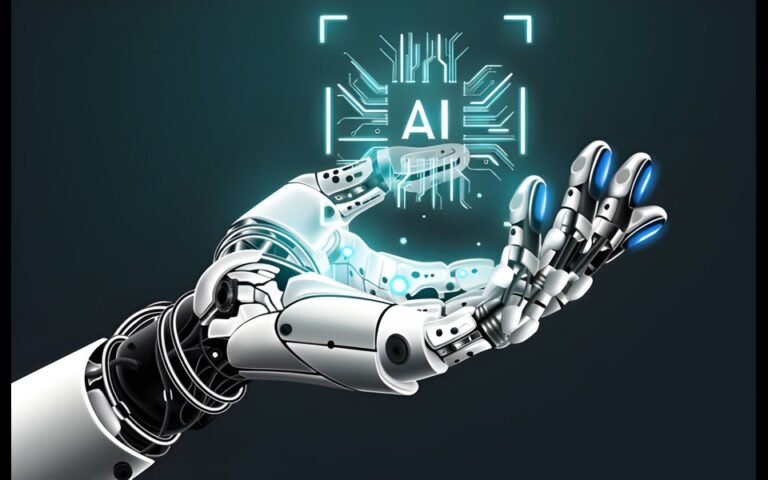Introduction
The contemporary digital ecosystem is characterized by rapid innovation, increasing connectivity, and the proliferation of intelligent systems designed to enhance user experiences across industries. Among these systems, chatbots have emerged as powerful tools for interaction, customer service, and task automation. The field of AI Chatbot Development has grown substantially due to advancements in natural language processing, machine learning, and cloud computing. However, a critical dimension that underpins the efficiency and scalability of these conversational agents is the integration of application programming interfaces. API integrations serve as the connective tissue between chatbots and external systems, enabling them to access data, execute actions, and deliver contextually relevant responses in real time. The importance of API integrations cannot be overstated, as they provide the functional pathways through which chatbots interface with diverse platforms, ranging from e commerce to healthcare.
Theoretical Foundations of API Integrations
At the theoretical level, the concept of API integrations arises from the need for interoperability between software systems. APIs function as structured sets of rules and protocols that define how software components communicate with each other. The theoretical framework is grounded in the principle of modularity, which emphasizes the separation of complex systems into smaller functional units that interact seamlessly. For chatbots, this modularity ensures that the core conversational logic remains distinct from external service interactions, thereby preserving system flexibility and maintainability.
API integrations align with systems theory, which posits that technological entities are not isolated but operate as part of a larger interconnected environment. Chatbots exemplify this notion by relying on external data sources and services to augment their capabilities. The theoretical perspective underscores the role of APIs as mediators that allow conversational systems to transcend the limitations of internal algorithms and leverage broader digital ecosystems.
Functional Role of API Integrations in Chatbots
The functionality of chatbots is significantly enhanced by API integrations. Without such integrations, conversational systems are confined to predefined responses and static interactions. APIs enable dynamic interactions by providing access to external resources in real time. For example, a travel chatbot can query flight schedules, hotel availability, and weather updates through API calls, thereby offering users comprehensive assistance. Similarly, an e commerce chatbot can access inventory systems, process payments, and track shipments through seamless API communication.
The role of APIs in functional chatbot architecture extends to personalization. By integrating with customer relationship management systems, chatbots can tailor responses based on user history, preferences, and behavioral patterns. This capacity for contextual personalization enhances user satisfaction and fosters long term engagement. Moreover, APIs enable chatbots to execute transactions directly, transforming them from passive information providers into active agents of service delivery.
API Integrations and Data Flow
The effectiveness of chatbots relies heavily on their ability to process, interpret, and act upon data. APIs facilitate the flow of data between chatbots and external databases, analytical tools, and service platforms. This seamless exchange of information ensures that chatbots remain contextually relevant and up to date. For instance, in financial services, chatbots integrated with banking APIs can provide real time account balances, initiate fund transfers, and alert users about unusual transactions.
The flow of data through APIs also supports feedback loops essential for machine learning. Chatbot interactions generate valuable user data, which can be transmitted through APIs to analytics platforms. These insights inform iterative improvements in conversational accuracy and efficiency. By integrating with machine learning frameworks hosted in the cloud, chatbots continuously refine their understanding of language patterns and user intent. Thus, API integrations play a pivotal role not only in enabling immediate functionality but also in supporting long term learning and evolution.
Security and Ethical Considerations in API Integrations
The incorporation of APIs introduces critical concerns regarding data security and ethical responsibility. Chatbots frequently handle sensitive information such as personal identifiers, financial details, and medical records. Ensuring that API integrations are secure is therefore essential to maintaining user trust and regulatory compliance.
Security measures for API integrations include authentication protocols, encryption mechanisms, and rate limiting to prevent misuse. Standard frameworks such as OAuth are commonly employed to manage secure authorization without compromising user credentials. Nevertheless, vulnerabilities may arise from poorly implemented APIs, which can expose chatbots to data breaches or unauthorized access.
Ethical considerations extend beyond technical safeguards. Chatbots, through their API integrations, influence user decisions and behavior. It is crucial to ensure that these interactions remain transparent and unbiased. For example, when recommending products, chatbots must avoid manipulative suggestions that exploit user vulnerabilities. Furthermore, regulatory compliance frameworks such as the General Data Protection Regulation mandate explicit consent for data usage, underscoring the ethical obligation to respect user autonomy.
Economic Impact of API Driven Chatbots
From an economic perspective, API integrations significantly expand the utility and value of chatbots. By enabling diverse functionalities, APIs transform chatbots into multifunctional assets that drive revenue and reduce costs. Organizations that integrate chatbots with payment gateways, logistics platforms, and support systems benefit from reduced human labor costs and enhanced service availability.
Small and medium enterprises, in particular, gain competitive advantages through API driven chatbots. Instead of building complex systems from the ground up, businesses can leverage existing APIs to incorporate advanced functionalities at minimal cost. This democratizes access to technological innovation and accelerates digital transformation across sectors.
Furthermore, API integrations facilitate market expansion by enabling chatbots to serve international users. For example, integration with multilingual translation APIs allows chatbots to operate in diverse linguistic contexts. Similarly, integration with international payment systems supports global e commerce. The economic implications are therefore both microeconomic, enhancing individual organizational performance, and macroeconomic, contributing to broader digital economic growth.
API Integrations in Education and Research
The role of API integrations extends to educational and research contexts, where chatbots serve as learning facilitators and research assistants. Educational chatbots integrated with learning management systems provide personalized instruction, track student progress, and recommend resources. APIs connecting to online libraries and databases enable chatbots to deliver academic content on demand.
In research, chatbots integrated with survey platforms and data analysis tools assist in participant recruitment, data collection, and real time analytics. These integrations reduce logistical burdens and accelerate the research process. Moreover, APIs facilitate interdisciplinary collaboration by connecting chatbots with diverse knowledge repositories. This enhances the capacity of researchers to access and synthesize information across domains.
The role of API integrations in these contexts exemplifies the broader theoretical perspective of knowledge democratization, emphasizing the role of digital technologies in making education and research more accessible and efficient.
Technological Evolution and Future Directions
The future trajectory of chatbot development will be increasingly defined by advanced API integrations. Emerging technologies such as blockchain, quantum computing, and edge computing will expand the scope of chatbot functionality. For instance, blockchain based APIs may enhance the security and transparency of financial transactions executed by chatbots. Quantum computing integrations may enable faster processing of complex linguistic models, thereby improving conversational intelligence.
Edge computing introduces the possibility of localized API integrations that reduce latency and improve responsiveness. This is particularly valuable for applications in autonomous vehicles, healthcare monitoring, and industrial automation. Chatbots integrated with edge based APIs will be capable of delivering real time insights in mission critical scenarios.
Additionally, the rise of multimodal interactions will rely on sophisticated API integrations. Chatbots capable of processing text, voice, and visual inputs will require APIs that connect them with speech recognition engines, image analysis platforms, and multimedia content databases. This convergence of modalities will expand the role of chatbots from conversational agents to comprehensive digital companions.
Conclusion
The role of API integrations in chatbot development is fundamental to advancing the functionality, scalability, and relevance of conversational systems. Through APIs, chatbots access external resources, process dynamic data, execute transactions, and deliver personalized user experiences. The theoretical foundations of modularity and systems interconnectedness underscore the indispensable role of API integrations as mediators between isolated software entities and broader digital ecosystems.
The integration of APIs into chatbot architectures addresses not only technical requirements but also economic, educational, and ethical dimensions. By enabling cost effective innovation, expanding market reach, and democratizing access to knowledge, API driven chatbots embody the transformative potential of contemporary digital technologies. Looking ahead, the evolution of APIs in conjunction with emerging computational paradigms will shape the future of conversational intelligence.
Ultimately, the sustained development of chatbot systems will depend on the ability to harness APIs responsibly, securely, and innovatively. The culmination of these efforts will not only strengthen the field of conversational technology but also redefine human machine interaction. In this broader context, the future of intelligent systems will be guided by the principles of Ai Development, where conversational agents achieve greater autonomy, contextual awareness, and societal impact through their seamless integration with diverse digital environments.





